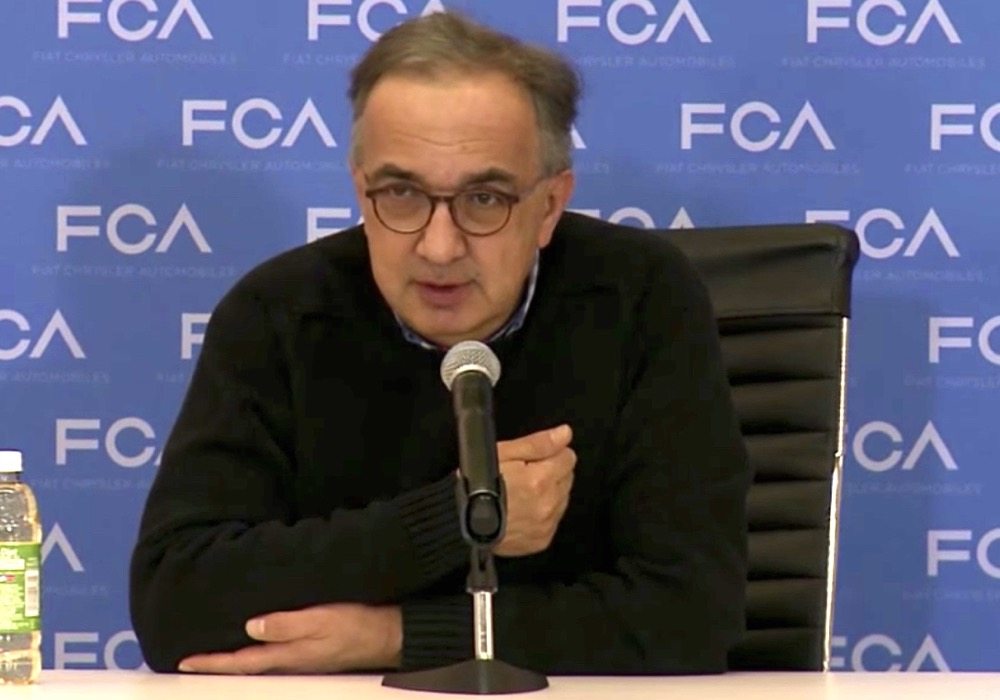Through mid-winter, the push from machinery executives for the U.S. government to reach a deal on NAFTA seemed to be gearing up. AEM (the Association of Equipment Manufacturers) was sending out that message even louder and clearer than it had been on behalf of its member companies in the ag and construction machinery sector.
An AEM news release in late January quoted Rich Goldsbury, chair of AEM’s board of directors and president of Doosan Bobcat North America. Speaking to a U.S. newspaper, Goldsbury pointed out that Canada and Mexico were the two top markets for both construction and farm equipment built in the U.S.
Read Also

Farm & Family – Feb 27 edition
Last week, we highlighted part one of a two-part series by GFM associate digital editor Geralyn Wichers about why you…
Canada, he cited, bought US$9.1 billion worth of construction equipment and US$2.1 billion in farm machinery in 2015.
“There are plenty of terrific opportunities to improve upon NAFTA to the benefit of manufacturers in the United States as well as Canada and Mexico,” he was quoted as saying. “But exiting the agreement altogether would risk U.S. equipment manufacturers’ ability to sell to some of their most important customers.”
Read more: U.S. farm group targets Trump with free-trade ads
In contrast, there were also very public dissenting views on trade coming from other prominent quarters. A notable example of that occurred on the U.S. president’s favourite social media site, Twitter. Missouri Republican Senate candidate Courtland Sykes reacted to a tweet from Arizona Senator Jeff Flake, which noted Canada was signing the Trans-Pacific Partnership agreement and the U.S. was starting to be left out of global trade.
Sykes, whose Twitter self-description includes some of the Trumpian phases such as #draintheswamp and #MAGA (make America great again), derided Flake’s comments, tweeting “As our economy skyrockets. Go home globalist.”
So which view has the ear of the U.S. voter base?
This excerpt from an opinion piece in the Washington Post by professor Alexandra Guisinger, author of the book American Opinion on Trade, may offer a clue: “Conventional wisdom suggests that (U.S.) voters support trade protection when they think it is in their economic interest. Many news outlets have provided helpful lists of which U.S. jobs would be helped or hurt by limits on imports.
“But this conventional wisdom misses a key fact: Most Americans — over 70 per cent in my surveys — either say that trade doesn’t affect their employment or that they don’t know whether it does.”
And that raises the question: will the voice of manufacturers urging a renewal of NAFTA be widely heard in the U.S.? Is anyone listening?
Possibly. Other public polls, while not asking as directly as Guisinger whether Americans think trade affects their own jobs, do show general support for the idea of trade.
But that support may not be very deep, according to the Chicago Council on Global Affairs annual poll for 2017.
The CCGA results suggested 53 per cent of Americans think NAFTA is good for the U.S. economy. But interestingly, the same poll found that those who are most likely to see the president in a favourable light are the ones least likely to say NAFTA is good for the U.S.
In other words, his anti-trade rhetoric reverberates with his core political supporters, which may be a far more significant driver of the eventual outcome of negotiations than the overall number who support the deal.
Many Canadian observers suggest the U.S.’s untenable NAFTA demands, such as a five-year sunset clause that could see the deal eventually expire, may simply be a way to claim they tried to negotiate but couldn’t make a fair deal.
Among those publicly musing about that include Canada’s former ambassador to the U.S. Derek Burney, who played a key role in the original NAFTA negotiations.
Speaking to the Globe and Mail as far back as August 2017, Burney said, “I see no grounds yet for either complacency or optimism. I do see a period of uncertainty ahead for investors, producers and service providers. We are just beginning to peel what could be a large, possibly pungent, onion.
“We need to prepare thoroughly for all contingencies and be explicit up front about what is not negotiable.”
Machinery brand executives I’ve spoken to over the past year agree the risk of failed NAFTA negotiations and the broader U.S. stance on trade is causing uncertainty within the industry, putting many investment plans on hold.
At his press conference at the Detroit Auto Show, Sergio Marchionne, chair of CNH Global, the parent company of New Holland and Case IH, and CEO of FCA (Fiat Chrysler Automobiles), reiterated this and suggested a re-introduction of tariffs could harm segments of the auto industry.
“I think the risk of this so-called ‘chicken’ tactic would have been lethal to the heavy-duty (pickup truck) business on FCA and all the participants that manufacture in Mexico,” he said.
Marchionne also noted FCA recently moved pickup truck production back to Michigan as a way to appease the current U.S. administration.
“I sincerely hope that some of the demands about NAFTA that are being pushed by the administration are going to be retuned for a variety of reasons,” he said. “I think the last announcement we made about repatriating the Ram Heavy Duty into Warren (Michigan) goes a long way — I think — about addressing President Trump’s concerns about the dislocation of production capacity out of the United States.”
The demand by U.S. negotiators that a much higher percentage of autos be made in the States may be difficult for manufacturers to achieve, at least for some time.
Marchionne continued, “I don’t think we need to go to the 85 (per cent regional content) number to address what President Trump’s concerns are, and I’m hopeful — confident may be too much — but I’m hopeful going forward that we’ll see a more rational number and we’ll be able to meet the standard.”
According to a Reuters report, a Mexican auto industry representative familiar with the talks called the U.S. origin content demand “insane.”
Marchionne said the recent redistribution of FCA auto manufacturing in North America made it fair to all three countries.
“I think we’ve done the right thing by the workforce in the United States and we’ve addressed the Mexican concerns by providing a platform for global distribution (to be built there),” he continued. “Which is something that couldn’t have been done out of the U.S. The package works.”
But if the U.S. continues to press for a higher American content in autos, critics have pointed out it could make U.S.-based automakers uncompetitive compared to imports that can take advantage of cheaper production methods elsewhere.
“It is an uneconomical thing for us to produce the Heavy Duty in the United States,” Marchionne said bluntly. “It costs us more money than it costs to produce in Mexico.”
Nevertheless, he added he thought the brand owed it to the U.S. to build the trucks there, because Americans are the major purchasers and taxpayer funding helped save the brand during the economic crisis of a decade or so ago. “I think it should never have left,” he said. “I think we just did the right thing by bringing it back.”
But the clear implication is buyers can expect higher sticker prices on those trucks in the future, and possibly on all vehicles from all brands.
The other effects of U.S. content level demands on existing supply chains aren’t exactly clear. Some industry experts believe they might lead automakers to just pay import duties rather than undertake the costly process of trying to realign all of their supply chain networks.
At the World Economic Forum in Davos, Switzerland, our prime minister chose to meet with U.S. industry executives rather than the U.S. president. “We just had a great conversation about all the jobs in Canada and the U.S. that rely on NAFTA,” the CBC quoted Trudeau as telling reporters after the meeting.
The quote continued, “We talked a lot about ensuring that citizens, and workers and families on both sides of the border understand that the integrated supply chains, the trade back and forth between Canada and the U.S. and Mexico, has been tremendously beneficial and we’re going to keep working on that.”
That — and perhaps other efforts — may be working. Following recent talks, the mood of Canadian and Mexican negotiators seems somewhat more optimistic.
But if the president’s base of supporters remains opposed to NAFTA, and if many other U.S. citizens — 70 per cent, if Guisinger’s analysis is correct — are unclear about the impact of trade on their own pocketbooks, there may still be ample cause for concern.
















